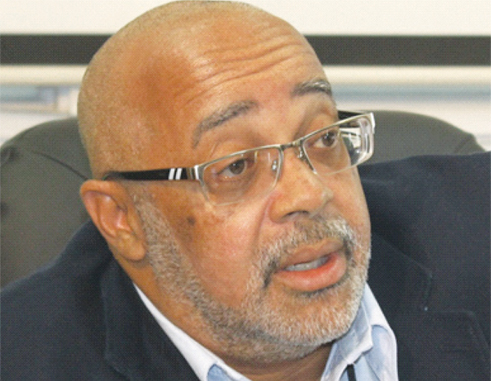DURING the question and answer segment following the recent lecture delivered by OECS Director General Dr.Didacus Jules on the theme, “National Service and National Pride”, a very interesting point came up. An audience member prompted: “Why isn’t English Literature a compulsory subject for secondary school students?”
The question has many merits because, as others present at the event to honour Governor General Dame Pearlette’s 20th year in the post, agreed, splitting English into English A and B at the CSEC level is partly responsible for the poor performance of students taking the subjects offered by the Caribbean Examinations Council (CXC).
Many argued that while English A was important for understanding how to use the language – such as the rules to follow – it is the English B aspect that possesses the real power that forces people to think critically and analyse themselves and their surroundings.
The mere fact that composition, comprehension, reading, drama, singing and other elements of English are taught to students early on in their lives is enough to justify that students need to keep both aspects of the subject at heart throughout their lives. As such, having English A as a core subject for CSEC and not English B militates against the greatest potential students have for not only doing well in English but in life, in general.
As an example, it seems that Saint Lucian students themselves are no too eager to take English A at the CSEC level, either. While 2,080 students sat English A in 2015, only 248 took English B, with a pass rate of 66.15% for English A and 81.45% for English B. In 2014, Saint Lucian students sitting English A numbered 2,245 with merely 264 sitting English B. The pass rate for English A that year was 64.45% while for English B it was 79.55%.
In a society where literature has been recognized at the highest level globally – with Sir Derek Walcott winning the Nobel Prize for it – one would have thought by now that with all the innovations being espoused by successive administrations that English B would have become a core subject. Not so! That’s why it is not uncommon for many people to not pick up on a metaphor, a simile let alone a hint about life around them. Worse yet, even pick up a Walcott book and read a few pages without finding “his work too hard to understand”.
With another school year just about a month old, it would serve our students’ best interest to either have them learn and sit both English A and B at the CSEC level or simply do like other countries where they do not split their languages in the middle. If a society is to develop intellectually, it will need all the critical mass to do so, including reading a play or good novel or writing a poem – whether or not, like Mathematics, they find it too difficult to understand.















Actually I thought English A was not taught anymore; not being cynical. I say this because I hear so much bad English in this country at all levels: such as no regard for the past participle eg. “have begun”, which is correct ; they tend to say nowadays “have began” . Bad pronunciation is another area such as “lettuce” the “u” is not supposed to be pronounced ; correct is “lettice” . Why the British did this is another question; lots of inconsistencies in this language but this is the way it is.
I can go on and on with this ….